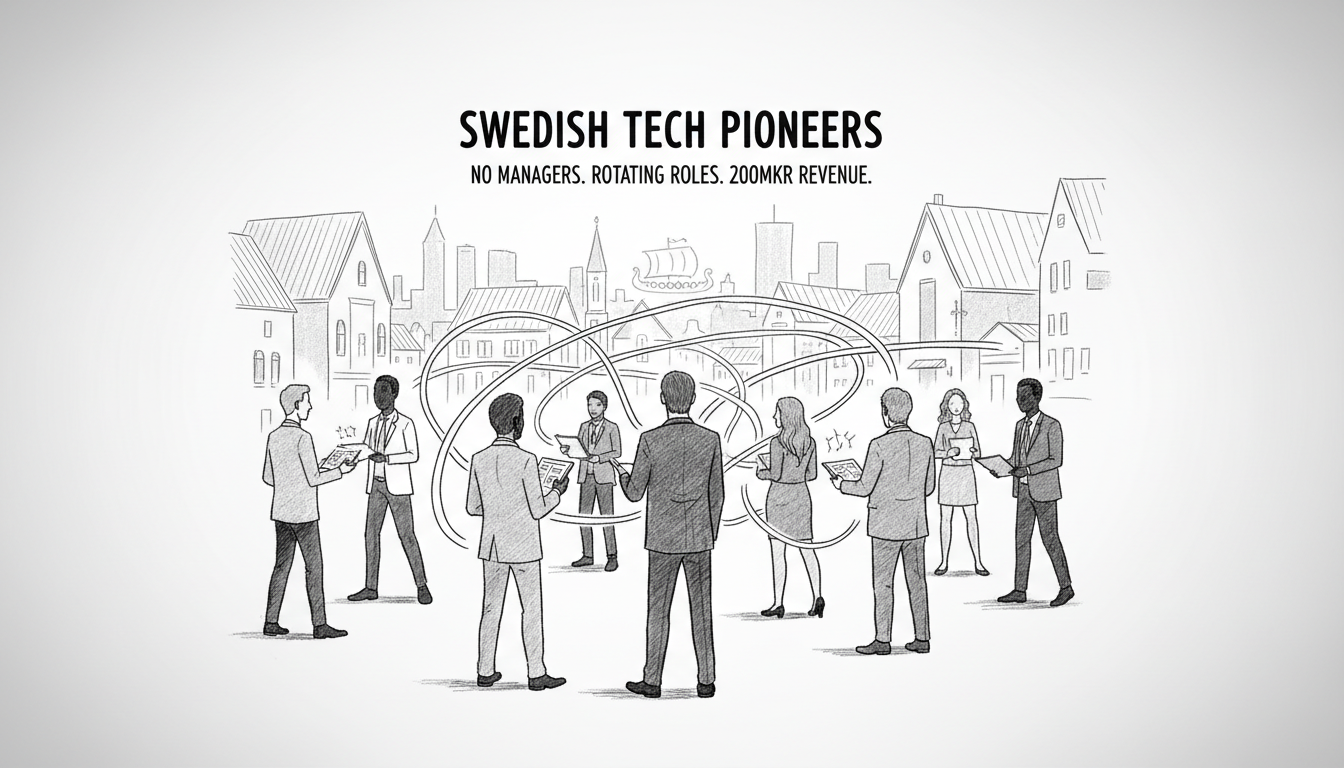A Gothenburg-based technology firm generates nearly 200 million Swedish kronor in revenue with 113 employees but operates without a single manager. Qamcom Research & Technology has eliminated traditional management positions entirely. The company instead rotates responsibilities among team members based on expertise and project needs.
Founder and co-owner Johan Lassing explains their unique approach. He says decision-making authority follows information access rather than formal hierarchy. The system does not require unanimous consensus for every decision. Instead, those with relevant knowledge and context make informed choices for their areas.
This management-free model represents a radical departure from conventional Swedish business structures. Sweden typically maintains clear corporate hierarchies despite its reputation for flat organizational cultures. The company's approach challenges fundamental assumptions about workplace leadership.
Qamcom specializes in advanced research and technology development. Their work spans multiple sectors including communications and sensor systems. The 200 million kronor revenue demonstrates the commercial viability of their unconventional structure.
What does this mean for employee satisfaction and productivity? Early indications suggest high engagement levels among staff. Employees report increased autonomy and professional development opportunities. The rotation system allows workers to gain diverse experience across company functions.
Other Swedish companies have experimented with similar models but rarely at this scale. Most Scandinavian flat organizations maintain some form of team leadership. Qamcom's complete elimination of managerial positions represents an extreme implementation of self-management principles.
The company faces unique challenges without traditional managers. Coordination across projects requires clear communication protocols. Decision documentation becomes crucial when responsibility shifts regularly. Conflict resolution mechanisms must function without designated arbiters.
International businesses watch Scandinavian workplace innovations closely. Nordic countries often pioneer progressive employment practices. Sweden's strong worker protection laws provide a safety net for experimental organizational structures. This case may influence global discussions about the future of work.
Could this model work outside Sweden's specific cultural context? The answer remains uncertain. Sweden's high-trust society and strong social safety nets enable workplace experiments that might fail elsewhere. The country's consensus-oriented culture supports collaborative decision-making.
Qamcom's experiment continues to evolve as the company grows. The real test will come during economic downturns or major crises. Traditional hierarchies often provide clear command structures during emergencies. The company must prove its model can withstand serious business challenges.
This case study offers valuable insights for organizations worldwide. It demonstrates that radical alternatives to management can succeed commercially. The approach may not suit every company or industry. It does expand our understanding of what's possible in workplace organization.

